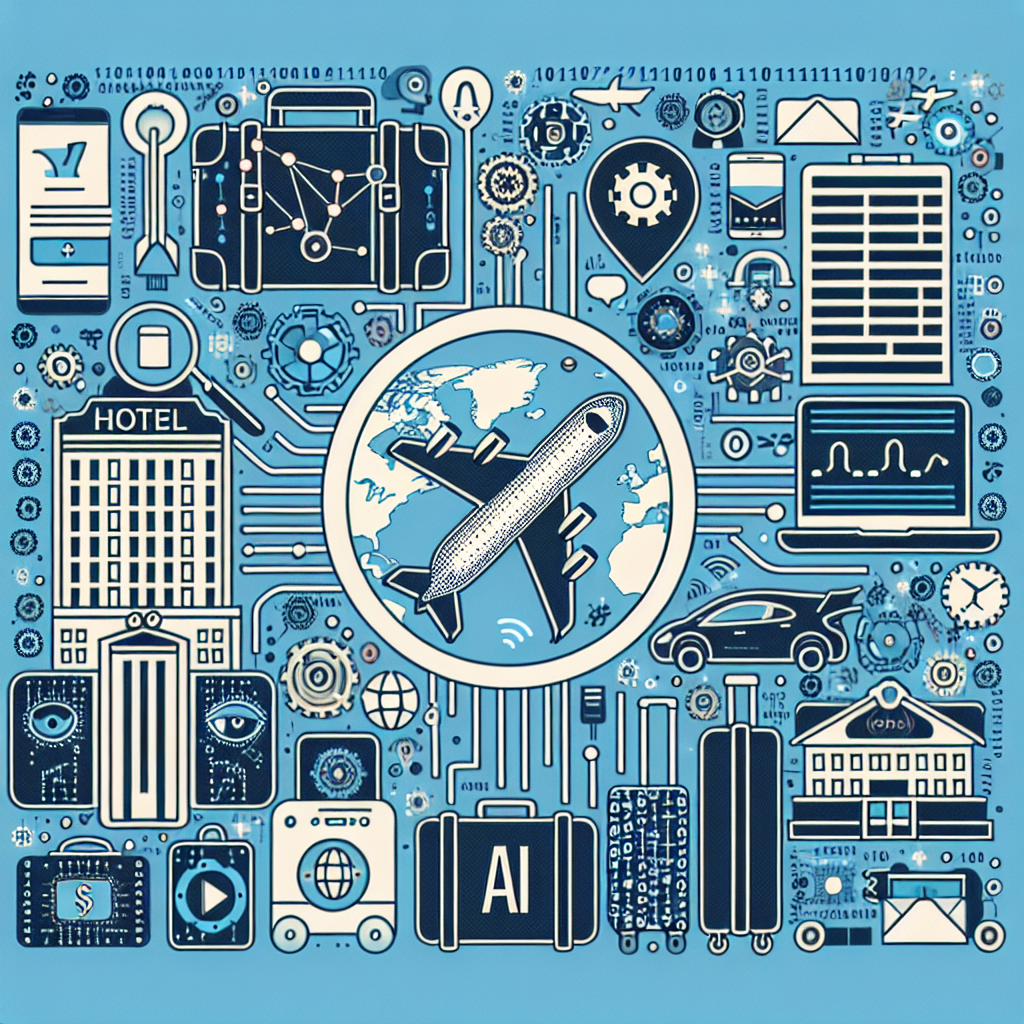Artificial Intelligence (AI) has revolutionized many industries, and the travel industry is no exception. AI-driven personalization is changing the way that companies interact with their customers, offering a more tailored and personalized experience that can lead to increased customer satisfaction and loyalty. In this article, we will explore the role of AI-driven personalization in the travel industry, its benefits, challenges, and how it is shaping the future of travel.
What is AI-driven personalization?
AI-driven personalization is the use of artificial intelligence technologies to analyze data and provide personalized recommendations and experiences to users. In the travel industry, AI-driven personalization can be used to analyze customer behavior, preferences, and past interactions to offer tailored travel recommendations, personalized offers, and a more seamless booking experience.
One of the key benefits of AI-driven personalization is its ability to provide a more personalized and relevant experience for customers. By analyzing data on customer preferences, interests, and behavior, AI systems can offer personalized recommendations for flights, hotels, activities, and other travel services that are tailored to each individual’s needs and preferences. This can lead to increased customer satisfaction, loyalty, and ultimately, higher revenues for travel companies.
How does AI-driven personalization work in the travel industry?
AI-driven personalization in the travel industry works by collecting and analyzing data on customer behavior, preferences, and interactions with travel websites and apps. This data is then used to create personalized recommendations and offers for customers based on their individual preferences and interests.
For example, a travel company may use AI algorithms to analyze a customer’s past booking history, browsing behavior, and demographic information to offer personalized recommendations for flights, hotels, and activities that are tailored to the customer’s preferences. This can help customers find the best deals and options that match their interests and budget, leading to a more satisfying and seamless booking experience.
In addition to personalized recommendations, AI-driven personalization can also be used to automate customer service interactions, such as chatbots that can provide instant responses to customer inquiries and help customers book flights, hotels, and other travel services. This can help travel companies provide a more efficient and personalized customer service experience, leading to increased customer satisfaction and loyalty.
What are the benefits of AI-driven personalization in the travel industry?
There are several benefits of AI-driven personalization in the travel industry, including:
1. Increased customer satisfaction: By providing personalized recommendations and offers, travel companies can offer a more tailored and relevant experience for customers, leading to increased customer satisfaction and loyalty.
2. Higher revenues: Personalized recommendations can help customers find the best deals and options that match their preferences and budget, leading to increased bookings and higher revenues for travel companies.
3. Improved customer service: AI-driven personalization can help automate customer service interactions, such as chatbots that can provide instant responses to customer inquiries and help customers book travel services. This can help travel companies provide a more efficient and personalized customer service experience.
4. Enhanced marketing effectiveness: By analyzing customer data and behavior, AI-driven personalization can help travel companies target their marketing efforts more effectively, leading to higher conversion rates and ROI on marketing campaigns.
Challenges of AI-driven personalization in the travel industry
While AI-driven personalization offers many benefits for the travel industry, there are also some challenges to consider, including:
1. Data privacy concerns: Collecting and analyzing customer data for personalized recommendations raises concerns about data privacy and security. Travel companies must ensure that they are transparent about how they collect and use customer data and comply with data privacy regulations.
2. Implementation costs: Implementing AI-driven personalization technologies can be costly and time-consuming for travel companies. They must invest in the right technologies, hire skilled data scientists and AI experts, and integrate AI systems with existing IT infrastructure.
3. Accuracy and reliability: AI algorithms are only as good as the data they are based on. Travel companies must ensure that they have high-quality data and accurate algorithms to provide reliable and relevant personalized recommendations to customers.
4. Customer acceptance: Some customers may be wary of AI-driven personalization and prefer not to share their personal data with travel companies. Travel companies must communicate the benefits of personalized recommendations and ensure that they have clear opt-in and opt-out options for customers.
Future of AI-driven personalization in the travel industry
Despite the challenges, AI-driven personalization is likely to play an increasingly important role in the future of the travel industry. As AI technologies continue to advance, travel companies will be able to provide even more personalized and seamless experiences for customers, leading to increased customer satisfaction, loyalty, and revenues.
In the future, we can expect to see more AI-driven personalization technologies, such as virtual travel assistants that can help customers plan and book their trips, AI-powered chatbots that can provide instant customer service, and predictive analytics that can anticipate customer needs and preferences. These technologies will help travel companies stay competitive in a rapidly changing industry and meet the growing demand for personalized travel experiences.
FAQs
Q: How does AI-driven personalization benefit travel companies?
A: AI-driven personalization can benefit travel companies by increasing customer satisfaction, loyalty, and revenues through personalized recommendations, improved customer service, and enhanced marketing effectiveness.
Q: What are the challenges of implementing AI-driven personalization in the travel industry?
A: Challenges of implementing AI-driven personalization in the travel industry include data privacy concerns, implementation costs, accuracy and reliability of AI algorithms, and customer acceptance of personalized recommendations.
Q: What is the future of AI-driven personalization in the travel industry?
A: In the future, we can expect to see more AI-driven personalization technologies, such as virtual travel assistants, AI-powered chatbots, and predictive analytics, that will help travel companies provide even more personalized and seamless experiences for customers.

